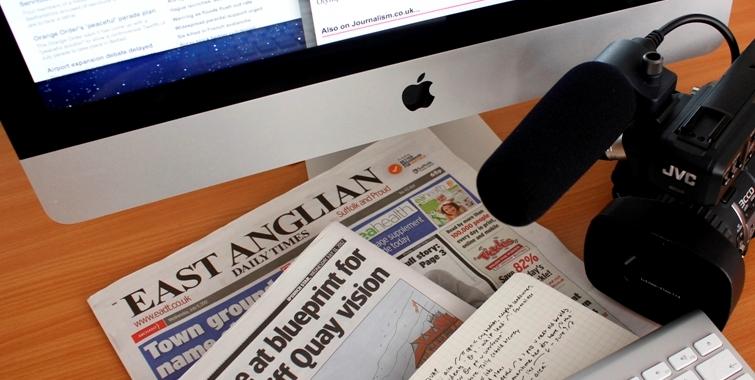As we swim around in our privileged little TAS bubble, we often find ourselves plagued by terrible cases of tunnel vision. The typical student lives an ever-moving, one-track lifestyle, focusing solely on the next homework assignment or the next track practice. The student journalist, however, gets to break all the rules and spill into every other lane.
I know: journalism is a dying art. You’ve probably realized this, more or less, as you judged your parents for grabbing a newspaper before a flight or told someone to switch the channel from BBC News. As much as I would love to believe that traditional journalism can experience some sort of Renaissance, its future seems bleak and shadowed by technology.
I’ve accepted the impending decay of journalism. But, oddly enough, that’s what makes it all the more special to me–at least, when I over-think about this in an overly romantic way. It’s an experience like no other–in fact, the word “experience” doesn’t even begin to encompass the eye-opening little strides out of my comfort zone that journalism has been for me. I’m a rather “to each their own” kind of person, but I can say for certain that if you’re not involved in this art, which won’t be around for much longer, you’re missing out.
Anyone and everyone can get something out of journalism. People skills, a knack for writing, new connections, the courage to speak up, better awareness of the world… The list goes on, really. And although you can get all of these things from elsewhere, I’d venture to say that journalism is the only place that offers you all of them at once, because it’s about exploring all that is around you.
As a student journalist, you force yourself to talk to people–and in the process of doing so, you always gain a little more confidence or hear some incredible words. You force yourself to write about that topic that really gets you going, but you wouldn’t have properly written about otherwise. You force yourself to examine whatever is going on around you, and to think of it from every angle possible, objectively and subjectively. You surround yourself with people who are always seeking worthy stories, eagerly analyzing things from every angle possible in order to find the best view. You slowly start to say the right words, and ask the questions that give you the answers you were looking for. You see the whole panorama, not just the narrow tunnel. You learn.
When you’re the student journalist, you have to be the one to address that controversial topic or that meaningful story. You have to be the one to make sure that important words don’t go unsaid.
And that, I dare say, is a privilege. Not only so, but it is also a privilege that will not sit around waiting for you for much longer. I guarantee you, by the way, that there are few feelings better than having someone tell you in the hallways that they read and enjoyed your article.
So yeah, maybe journalism is a dying art. I won’t tell you to go save it. But to be part of it as it fights with its head tall for those few extra breaths… You’ll surely find things you won’t see anywhere else in high school.


![Helen Zia talks to students in the auditorium at Flex. [ANNABELLE HSU/THE BLUE&GOLD]](https://blueandgoldonline.org/wp-content/uploads/2025/09/helen-zia-1200x800.jpg)
![[PHOTOS COURTESY OF MS. VINOD]](https://blueandgoldonline.org/wp-content/uploads/2025/09/Untitled-design-1200x675.png)
![Mr. Sean Patella-Buckley [PHOTO COURTESY OF MR. PATELLA-BUCKELY], Mr. Yoonsoo Kang [PHOTO COURTESY OF MR. KANG], Ms. Mikayla Patella-Buckley [PHOTO COURTESY OF MS. PATELLA-BUCKLEY], Ms. Lien Martens [PHOTO COURTESY OF MS. MARTENS],](https://blueandgoldonline.org/wp-content/uploads/2025/09/teachers-1200x675.png)
![Sofia Valadao [Erin Wu/The Blue&Gold]
Erin Wu [Annabelle Hsu/The Blue&Gold]](https://blueandgoldonline.org/wp-content/uploads/2025/05/erin-sofia-pic.png)
![Dr. Simeondis, Mr. Anderson. [Annabelle Hsu/The Blue&Gold]](https://blueandgoldonline.org/wp-content/uploads/2025/05/teachers-1200x675.jpg)
![[PHOTO COURTESY OF UNCULTURED, JUNIPER AND CO.]](https://blueandgoldonline.org/wp-content/uploads/2025/05/student-businesses-1200x675.png)